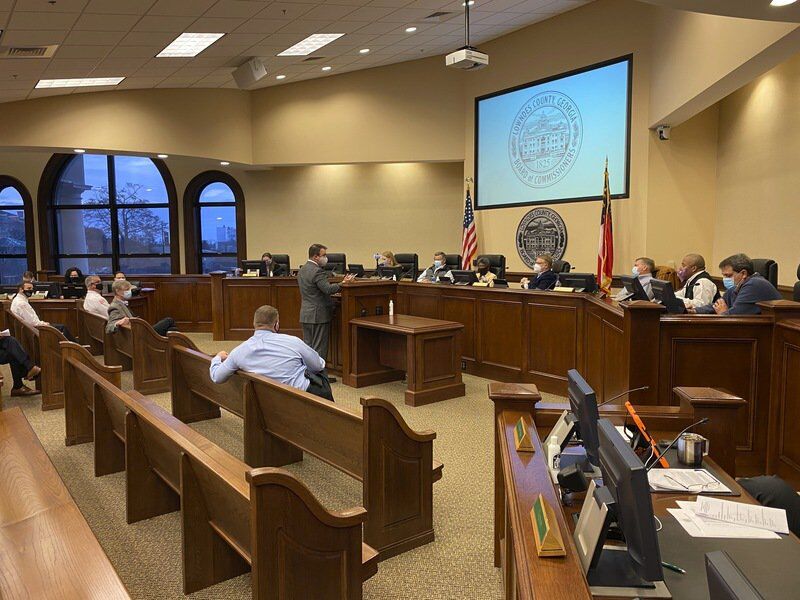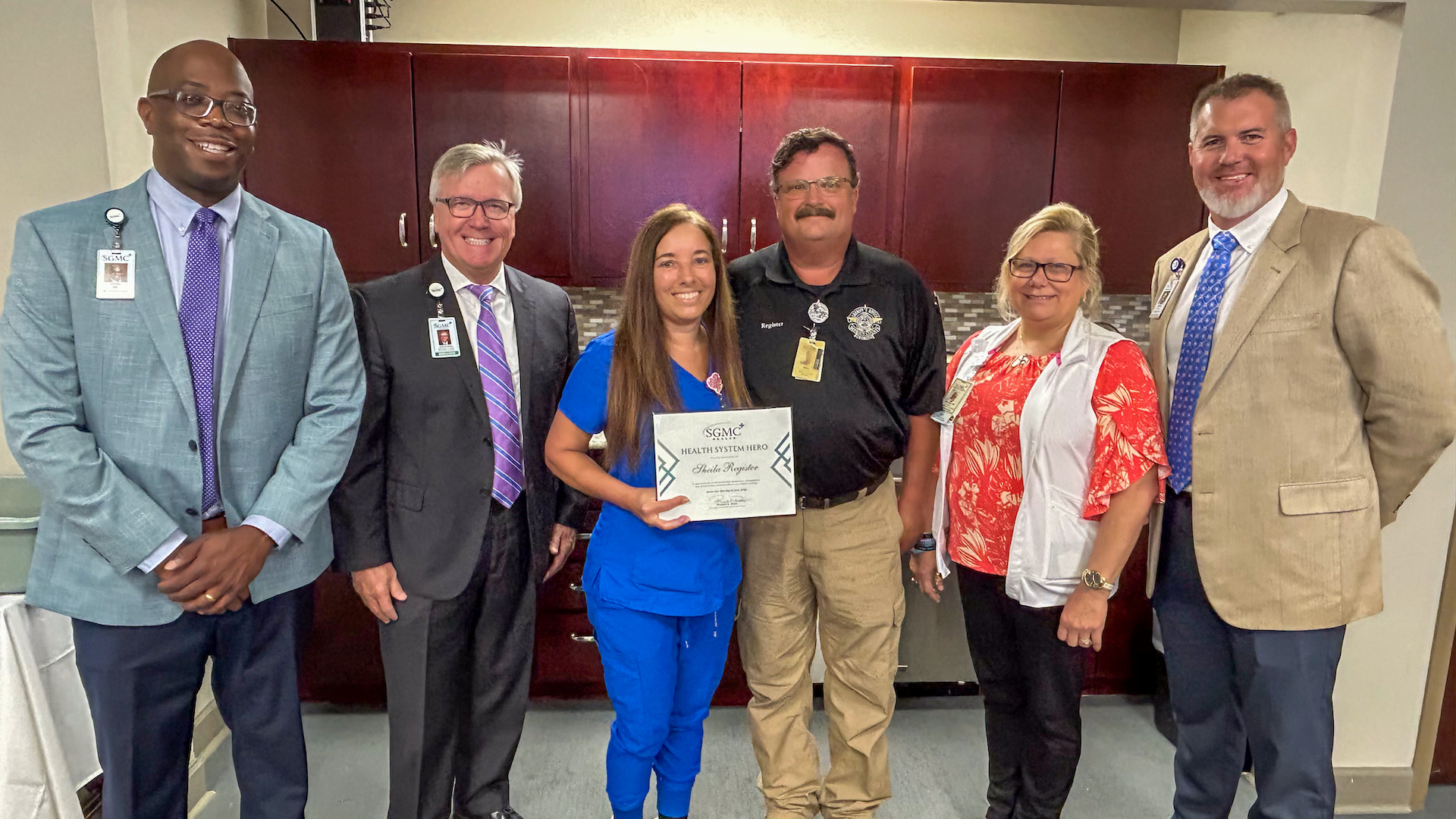Doctor answers vaccine questions: SGMC seeks to allay concerns
Published 8:00 am Tuesday, January 12, 2021

- Bryce Ethridge | The Valdosta Daily TimesDr. Brian Dawson, chief medical officer at South Georgia Medical Center, speaks to the Lowndes County Commission Jan. 11 in an attempt to get them to help bolster the community's confidence in the COVID-19 vaccine. Dawson answered commissioners questions regarding their own and community concerns with the vaccine.
VALDOSTA – A South Georgia Medical Center representative is meeting with local government officials to answer questions about the COVID-19 vaccines.
Dr. Brian Dawson, South Georgia Medical Center chief medical officer, appeared at the Lowndes County Commission work session Monday to update commissioners on the COVID-19 vaccine. He said he met with commissioners to assuage their concerns and concerns in the South Georgia community.
“One of the questions that comes up sometimes is, ‘Well, it just seems like this process went so fast,’” Dawson said. “They definitely didn’t skip any steps – that’s one thing that’s been very transparent with all the trials with these two companies in particular.”
He started his presentation with the technology behind the vaccines – messenger RNA.
In layman’s terms, Dawson said it’s like ripping out a page of a chef’s cookbook and copying it to use for your own recipe.
The actual definition behind it, he said, is it’s a copy of DNA inserted into the cytoplasm of a cell where all of the functioning parts of the cell are located. It’s then used to create more proteins for antibodies and the human body in general to identify and attack.
Both the Pfizer-BioNTech and Moderna vaccines utilize this technology. Though other vaccines have come out in other countries, SGMC uses the Pfizer and Moderna vaccines.
With the hospital seeing a recent spike in COVID-19, he wants area leaders and the public to better understand the vaccines, he said.
District 2 Commissioner Scott Orenstein said he got seriously ill after taking a flu vaccine, which is the reason he no longer gets a flu shot.
Having spoken to community members with similar experiences, Orenstein asked if some people are more susceptible to sickness from vaccines.
Dawson called such vaccine experiences “attenuated,” meaning they’ve been taken out of circulation, adding reactions such as the one Orenstein had are due to an immune response.
“We do know that the vast majority of the people that get it, they seem to have a sore shoulder and a little bit of swelling that seems to last for a couple of days and then it goes away,” Dawson said, referencing that’s what happened when he took the COVID-19 vaccine.
Some people may experience a “transient episode” of a light fever, maybe fatigue and some aches which are resolved in 24-48 hours.
He said there was and is concern about some people who may have anaphylactic, or allergic, reactions to medicines in the past.
“(Doctors) were advising that if you have a very high likelihood or allergic reactions in your past, then you should reconsider whether you should get (the vaccine),” Dawson said.
He said SGMC hasn’t experienced these types of issues with the COVID-19 vaccines.
Mark Wisenbaker, District 3 commissioner, asked how long after getting a positive COVID-19 test can you take the vaccine. Dawson said 90 days from the test.
In the case of getting the vaccine then contracting COVID-19 a couple of days later, Dawson said the vaccine hasn’t had time to work.
“You are not immune from the second the needle leaves your skin,” he said. “Once you get your first dose of the vaccine, within about seven to 10 days, you have about 52% immunity right then.”
Even then, the second dose is needed for 95% immunity. This is at or after the mandatory wait period of 21 and 28 days respectively for the Pfizer-BioNTech and Moderna vaccines.
How long the vaccination lasts is still unknown. Dawson said it’s because the vaccine is still new but so is the virus it is built to fight.
“We do suspect that there may be some weening – some variability between people, who it will protect more and for how long it will protect them,” he said. “Anybody that tells you differently is lying to you.”
District 4 Commissioner Demarcus Marshall asked what people should do about the vaccine if they’re asymptomatic. Dawson suggests communicating with a physician.
“Even when somebody’s had the infection, they’re clear of the infection and they’re no longer clinically ill, you can continue to spread non-transmissible viral particles that go out for up to 12 weeks,” he said.
And just because they’re not transmissible doesn’t mean they aren’t detectable.
Dawson suggested people with higher risk factors (i.e. cancer, immune suppression, heart disease, diabetes) take the vaccine for their safety.
The vaccine isn’t mandated at the hospital but 45%, but just below 50%, of hospital employees have taken it, Dawson said.
Because the vaccine was provided to SGMC by the government, the hospital is not charging anyone wanting to take the vaccine.
Health care workers and first responders have already had access to vaccination, but beginning Jan. 13, the hospital will start vaccinating people aged 65 or older.
This will be done via a drive thru at the SGMC Main Campus’ Surgery Center parking lot, 2417 N. Patterson St.





